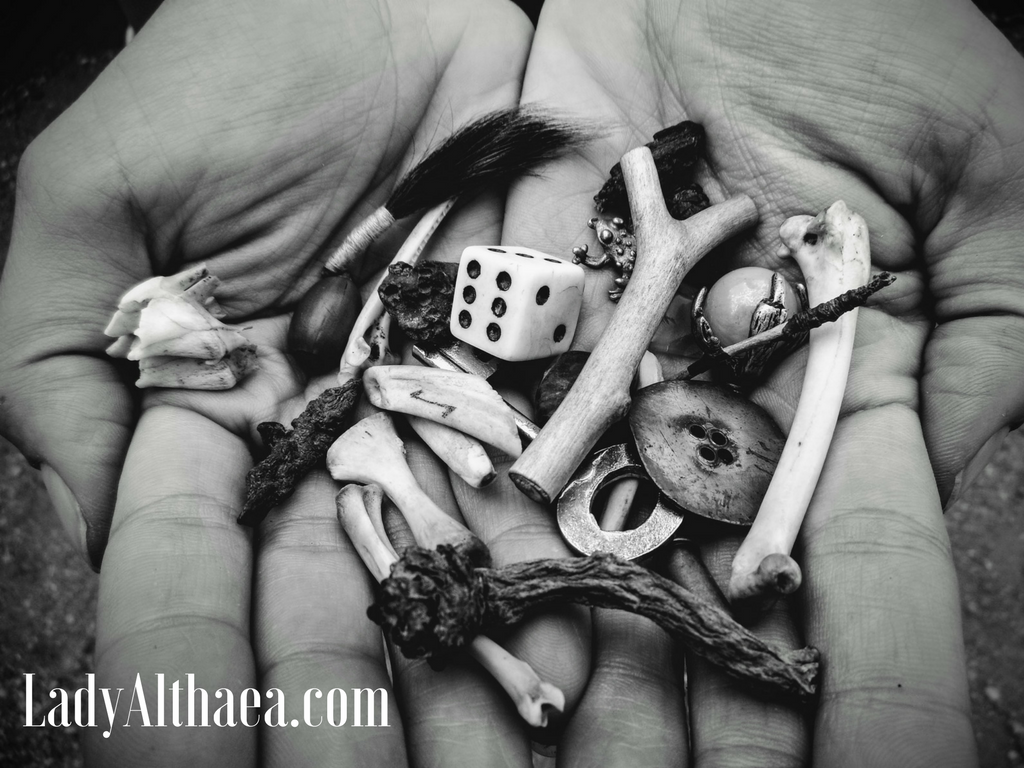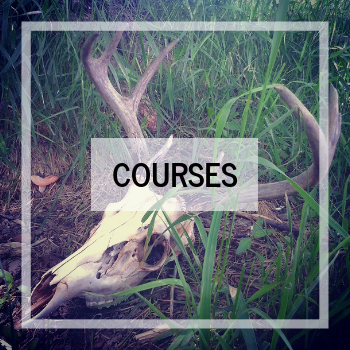|
Witchcraft is a mode of interacting with the spirit world. While the language we may use to describe our individual practices may vary, this is the one defining trait that we share. Truthfully, it is this work with (and sometimes within) the spirit world that, even historically, forms the basis of what we mean when we answer the question of what is witchcraft. At a fundamental level, witchcraft is exactly as the name implies: it is the craft of the witch. That emphasis on the word “craft” must not be overlooked, for it is the doing that is also fundamentally important. There are no beliefs that are necessary in witchcraft, only the doing. One is a witch because they practice witchcraft -there are no other qualifiers. However, that lack of common belief while professing to be a craft, a practice whose means and materials are spiritual in nature, can seem to be erroneous, if not contradictory. Furthermore, it can seemingly become more complicated when we take into account those differences in language. Very often, due to perspective, experiences, and background, we find ourselves talking about the same thing in seemingly very different terms and using different language to do so. For example, an animist witch may hold that they are interacting with the specific spirit of a specific type of plant (anthropomorphic personalization,) an atheist witch may hold that they are interacting with a specific pattern of energy that physically manifests as that type of plant (impersonal, non-sentient.) Both are right and correct in describing what they are doing. Yet, when we strip back the differences in language to embrace more broadly defined terms that encompass both definitions, while still maintaining clarity and value, it easy to see how both seemingly very different practices can both be witchcraft and how both witches are interacting with the spirit world, albeit from different perspectives.
The important thing to remember, here, is that so many of the terms that we use in discussing witchcraft -be they internally (i.e. among other witches) or externally (i.e. with those who do not practice witchcraft)- don't find their way to us so much from religion or even the dominating theistic thought, but, rather, from anthropology, which studies all aspects of what it means to be human, looking at human cultures from around the world. In this way, with so many differences and faced with so much variation, there are, inevitably, terms that must be agreed upon in order for any sort of communication to take place. Naturally, these terms must be clarified as to what they mean specifically in reference to the specific people that are being discussed. The same applies to witchcraft. While it may often seem that the language being used within this article favors a specific style of practice or viewpoint, this is not the case. Rather, in order to communicate in any way, especially with any clarity (which is always my hope and intentions in these articles and posts,) certain standard terms must be adopted, with the caveat that these terms have general definitions that need be clarified from time to time in order to maintain the highest level of accuracy, and that those definitions may very well change with time and due to the internal politics of whatever those terms refer to (for example, internally, we define the word "witch" and what it entails to be a witch quite differently now than we did just a few decades ago, while, externally, the definition of who and what a witch is has changed only marginally in the past century more so as a reflection of the more neutral stance that anthropology has taken, moving away from ethnocentric definitions and viewpoints, than any perceived changes in those who identify or are labeled as witches.) That said, I can, of course, only speak for myself and encourage others to speak about their religion and/or practices from a place of sensitivity to accuracy, clarity, and recognition that neither witchcraft nor Paganism is some sort of phenomenon and both have a seat nestled firmly within the fabric of humanity. Read into that as you will. With this in mind, that witchcraft is one of the myriad idiosyncrasies of human culture, it goes to follow that there are set defining traits that distinguish witchcraft from other modes of interacting with the spirit world. In other words, there are certain components that must all be present in order for the practice to be witchcraft and not something else, in order for it to not be some other spiritual practice or magickal system. This strict defining of witchcraft may upset some people, which is surely not the intent, and I am surely not the first person to have ever offered up a definition or specific defining principles (let me again refer you back to that wonderful science called "anthropology" which has had a definition for what constitutes witchcraft for longer than either of us have been alive...) But some degree of anger or, at least, disagreement is to be expected, even when such is offered from one with an internal perspective and who is typing these words as delicately as they can. In pinpointing what those defining traits are, in order to better understand what it is we mean when we discuss witchcraft and to describe what it is we do as witches, there are five fundamental components that stand out. Individually, none of these traits constitute the practice of witchcraft, yet in conjunction with each other, these five traits form the basis of all witches' practices -be they Wiccan, Atheist, Christian, or nondescript Religious Witches. Let us look at each of these traits in depth below:
These five traits are commonly found exclusive of witchcraft and as part of other modes of interacting with the spirit world, as well as various religions. This is to be expected, as witchcraft has been a part of humanity for longer than we have record or proof of, just as religion has, so it is only natural that many people, while shying away from the word witchcraft due to more modern (comparably) stigma associated with the term, still partake in many singular aspects from it. This does not convey any sort of secret desire to be a witch within that individual nor any sort of ownership of these aspects on the part of witchcraft (there are few, if any traits, that are exclusive to any one culture or cultural practice because it is basic fact that no culture, nor cultural practice, develops in a vacuum and cultural sharing is another idiosyncracy of general human culture) rather, it lends further credence to the idea that witchcraft is a naturally occurring component of human culture and will exist for as long as humans do. Obviously, there is much more that can be said upon this subject, expounding upon the concept that witchcraft is experiential, rather than being founded upon belief (which, my own experience shows me, is a concept that many people have a hard time grasping as they will very often attempt to add additional, irrelevant, beliefs to their own basic religious belief structure in order to justify how the practice of witchcraft is belief based, and therefore a religion, and those discussions are always... gross); how the nature of the witch is inescapable to one who delves into this practice as it is consequential to the similar experiences that witches have; how a code of ethics consequentially develops; how spirituality, and spiritual practices, are not the same as religion and can, and do, exist separately with just as much efficacy as religious based spiritualities and spiritual practices; et cetera. But this has already been a heavy and long post, and I question how many people have made it to this short afterward. That leaves these few final points as topics for further discussions at a later time. edited 11/13/2017
I read it all, I devoured every single word. I’ve been on a journey for a good few years now. First it was learning yoga and the skill of focus and awareness; then learning to read Tarot, then oracle cards; then becoming a Reiki practitioner; then the animal dreams and becoming conscious of animal spirits; then ancestors; then crystals; then bones; then more and more. There doesn’t see, to be one single resource for all of these, they are always written about as single entities, which I guess they are. But together when viewed as a journey, I have begun to see I’m in a path of transformation. And helping me to understand it, is YOUR website.
Althaea
2/24/2018 02:26:37 pm
Thank you so much for you kind words, Colleen! There is so much of our spiritual paths that is found within subtlety, laying just below the surface. Yet, when we uncover it, it seems so obvious, like we should have realized the connections all along. I'm glad to hear that I've been able to help you to uncover those connections! Words like yours are what keep me writing.
Clare Cowan
8/13/2018 07:27:34 am
I, like Colleen, also read and savoured every word!
Althaea
9/1/2018 09:11:50 pm
Thank you so much, Clare! :) Ah, those pesky "shoulds." They really do keep us from just getting on with whatever we want or need to do. But, you are in such a beautiful place to get started now. Your life experience is very useful and helps with providing deeper insight. Comments are closed.
|
Throwing the BonesStay ConnectedThank you!You have successfully subscribed. Archives
January 2023
|



